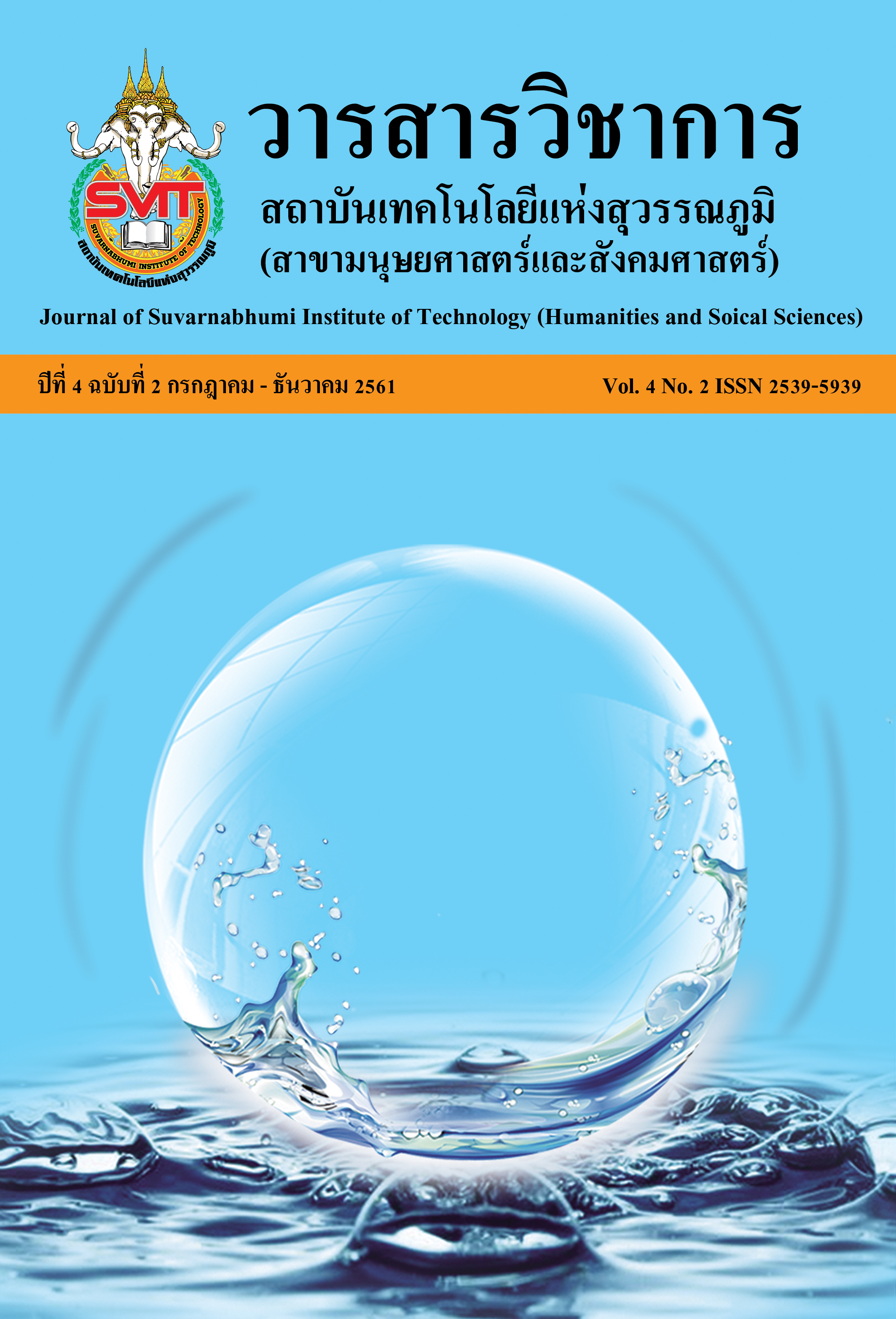APPROPRIATE MARKETING STRATEGY FOR RESTAURANTS IN BANGKOK
Keywords:
Marketing Strategy, Service Quality, SERVQUAL, Thai CuisineAbstract
In order to propose an appropriate marketing strategy for restaurants in Bangkok, this research aimed to investigate domestic and international tourists visiting Bangkok, their behaviors, expectations and experiences in food and restaurants services and marketing factors affecting their decision in choosing a restaurant. Questionnaire and face to face technique were used to collect data from tourists who agreed to answer the questions (n =400). It was found that both domestic and international tourists preferred having Thai cuisine than other cuisines and preferred having their meals in stand-alone restaurant than in hotel restaurant during their stay in Bangkok. On one hand, domestic tourists have more knowledge in Thai cuisine so their experiences in food and restaurants services in Bangkok did not reach their expectations. On the other, international tourists felt that food and restaurants services in Bangkok exceeded their expectation. Therefore; marketing strategy for these two segments should be different.
References
กรมการท่องเที่ยว, (2559). สถิตินักท่องเที่ยวปี พ.ศ. 2558. กระทรวงการท่องเที่ยวและกีฬา
Cronin, J. J., & Taylor, S. A. (1992). Measuring Service Quality: A Reexamination and Extension. Journal of Marketing, 56(3), 55-68
Dittmer, P. R., & Desmond Keefe III, J. (2009). Principles of Food, Beverage, and Labor Cost Controls New Jersey: John Wiley & Sons.
Kara, A. K., & Kucukemiroglu, O. (1995). Marketing Strategies for Fast Food Restaurants: A Customer View. International Journal of Contemporary Hospitality Management. 7(4). 16-22.
Kim, W. G. & Kim, H. B. (2004). Measuring Customer-Based Restaurant Brand Equity. Cornell Hotel and Restaurant Administration Quarterly. 45(2). 115-131.
Kivela, J. I. & Reece, A. (1999). Consumer Research in the Restaurant Environment, Part 1: A Conceptual Model of Dining Satisfaction and Return Patronge. International Journal of Contemporary Hospitality Management. 11(5). 205-222.
Lovelock, C. (2008). Service Marketing. Singapore: Prentise Hall.
Parasuraman, A., Berry, L. L. & Zeithaml, V. A. (2006). Percieved Service Quality as a Customer-Based Performance Measure: An Empirical Examination of Organizational Barriers Using an Extented Service Quality Model. Human Resource Management, November, 1-30
Parasuraman, A., Zeithaml, V. A., & Berry, L. L. (1985). A Conceptual Model of Service Quality and Its Implication for Future Research. Journal of Marketing, April, 35-48
The Culinary Institute of America. (2009). Remarkable Services (2 ed.). New Jersey: John Wiley & Sons.
Zeithaml, V. A., Berry, L. L., & Parasuraman, A. (1993). The Nature of Determenants of Customer Expectation of Service. Journal of Academy of Marketing Science, Winter, 1-12
Zeithaml, V. A., Parasuraman, A., & Berry, L. L. (1990). Delivering Quality Service - Balancing Customer Perceptions And Expectations. New York: The Free Press.
Johns, N., & Howard, A. (1998). Customer Expectations Versus Perceptions of Service Performance in the Foodservice Industry. International Journal of Service Industry Management. 9(3). 248-256
Downloads
Published
Issue
Section
License
The articles published are copyrighted by the Sarasas Journal of Humanities and Social Science. The opinions expressed in each article in this academic journal are those of the individual authors and do not reflect the views of Sarasas Suvarnabhumi Institute of Technology. The authors are solely responsible for all aspects of their respective articles. Any errors or inaccuracies in the articles are the sole responsibility of the authors.



